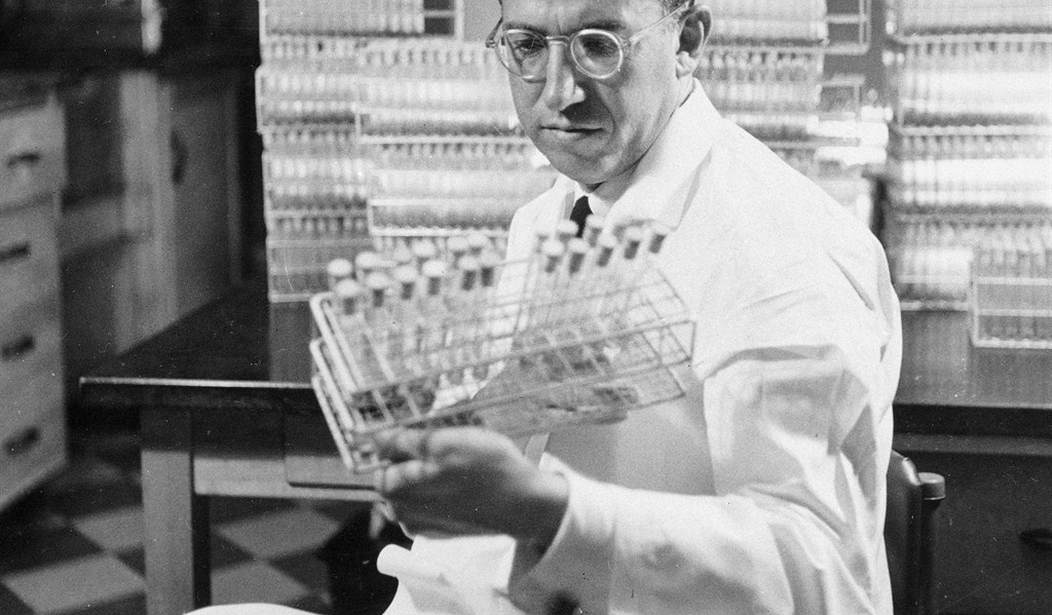If you read the title of this article and found yourself scratching your head and wondering what “racial chemistry” might be, don’t worry. You’re not alone. It makes about as much sense as “beef-based veganism.” (And even that’s closer to reality because people have been making “vegan beef” out of plants for a while now.) But it turns out that there is a professor at Rice University who is teaching a science class called “Afrochemistry.” As you might guess from the name, this is a chemistry class supposedly dealing with real chemistry, but specializing in how chemistry can be applied to understanding “Black life.” The indispensable Vodkapundit, Stephen Greene, explains at PJ Media.
Did you know that chemistry changes with skin color?
I don’t mean the amount of or type of melanin a person might have in their skin, determining how dark- or light-skinned they turn out to be. I’m talking about the actual atomic/molecular structures and processes of chemistry because those are totally different now if you’re black.
At least, that’s according to one young chemistry professor at Rice University who is teaching a new class beginning this semester called Afrochemistry, “the study of black-life matter.”
As in, Black Lives Matter. Get it? I just slapped my knee so hard I kicked a hole in the front of my desk.
So if you’re majoring in science at Rice and you sign up for Dr. Brooke Johnson’s Afrochemistry class, what will you be learning? According to the synopsis, you will discover how to “apply chemical tools and analysis to understand black life in the US.” You will also receive “personal reflections and proposals for addressing inequities in chemistry and chemical education.”
In other words, you may have thought you were going to be learning advanced science in the field of chemistry, but what you’ll really be hearing is an analysis of racial inequity in America framed (somehow) in the language of chemical analysis. As Vodkapundit learned, perhaps this shouldn’t come as much of a surprise. Despite the fact that Professor Johnson does allegedly hold an advanced degree in chemistry, she isn’t coming to this position from the science department. She holds a position with the school’s DEI department. The curtain has been pulled back a bit more now.
We’ve long known that racial obsession and “diversity” agendas can and have polluted other elements of the educational system, particularly when studying history. Being a history major in school is complex and it’s a topic that requires a vast amount of insight, context, and historical data to wrap your head around it in a coherent, digestible way. Even then it can be very challenging. Look no further than American history from the antebellum era through the Jim Crow years. It can be dizzying.
But chemistry? We almost certainly don’t know or fully understand everything about the physical universe and new discoveries are being made all of the time. But it seems as if we have a pretty good handle on the fundamental structure of the elements identified in the periodic table and how they interact with each other under a variety of circumstances. Chemistry was happening on this planet and indeed across the universe (as far as we know) long before there were people of any skin color showing up to muck about with it. We didn’t invent or change chemistry. We just discovered and analyzed it and looked for ways to put it to productive use.
What other brave new frontiers might Rice University explore next? Will there be a course in “Afromath?” You might have been happily going through life assuming that four squared was 16. But who knows now? Depending on the amount of melanin you have in your skin, the actual answer might be 17. Or 23. Or zebra. That’s no problem as long as you get to walk out the door on graduation day with a fancy math degree from a prestigious university. But what happens when you show up for your first day on the job at an actual laboratory and have to begin addressing math problems? The first time you write down “zebra,” your career may take a sudden and unwelcome turn. Don’t worry, though. You’ll probably be able to go back and get a position as a professor at Rice.








Join the conversation as a VIP Member